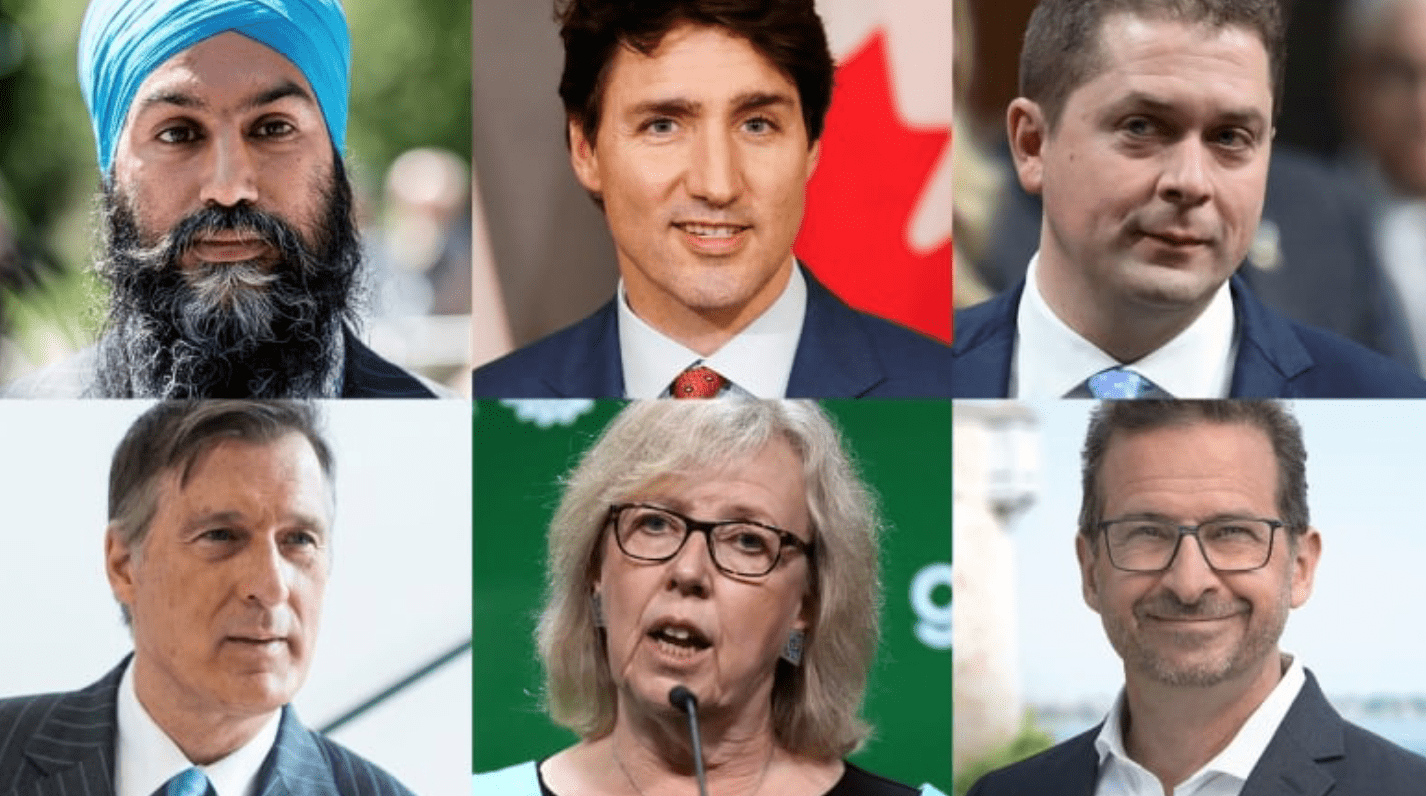In the midst of the federal election campaign, Justin Trudeau levied charges against the Conservatives for running "one of the dirtiest, nastiest campaigns" in Canadian history.
The Conservative campaign was indeed nasty, often personal and without much display of class or civility. That much was clear long before the opening of the English languages debates, when Andrew Scheer began by stating "Mr. Trudeau, you are a phoney and a fraud and you do not deserve to govern this country."
Scheer and the Conservatives were hardly alone in deploying negative tactics throughout the campaign.
Former Green Party leader Elizabeth May grew increasingly exasperated, particularly with her NDP rivals on Vancouver Island, after they spread partisan flyers decrying the Green's lack of commitment to abortion rights and national unity. According to May, the NDP was purposely misleading voters, in a blatantly "dishonest" move to secure seats.
And of course, Justin Trudeau and his Liberal team had no problem demonizing Scheer for his opposition to gay marriage in a speech dredged up from 15 years ago.
Or for his recently revealed US citizenship.
Or for his resume fibbing back during his days in the insurance business on the Saskatchewan prairies.
While these issues deserve scrutiny, as well as a proper explanation from Scheer, none are policy issues of importance to the country at this time.
Alas, Canadian politics has drifted further and further into this realm however; a deflection from genuine policy debate in favour of fear-mongering and character assassination.
Regrettably, the conclusion of the campaign brought no reprieve from negativity.
First, Andrew Scheer interrupted Jagmeet Singh before the latter had finished his televised concession speech. And shortly afterwards, Justin Trudeau did the very same to Scheer. At one point, all three men were speaking at once.
So much for the long-standing convention of granting one's opponents a gracious few minutes to speak to their supporters uninterrupted.
I cannot definitively say whether or not this recent campaign was the nastiest in Canadian history, as some pundits have asserted.
Despite the rather benign image Canadians display to the world, we are far from innocent, particularly in our politics.
After all, it hasn't been that long since Stephen Harper was governing the country, in a fashion described by Conrad Black as akin to "government by a sadistic Victorian schoolmaster."
Perhaps Harper learnt from the Liberals, who have certainly crossed the line of civility themselves. During the 2006 election, the grits almost aired an absurd campaign video, proclaiming that "soldiers with guns" would be a permanent fixture within Canadian cities, if Harper was elected.
Still, nothing comes close to the 1993 election, when Progressive Conservative staffers highlighted Jean Chretien's facial paralysis, caused by a youthful affliction of Bell's palsy, in perhaps Canada's most infamous ad.
Like I said, Canadian politicians are as capable of any when it comes to nastiness.
So for me, whether Election 2019 has been the nastiest campaign or not is beside the point.
What is at issue rather, is the desperate need to elevate the political discourse within this country.
For far too long, citizens have accepted, even rewarded, politicians who have engaged in overly negative and hyperbolic rhetoric against their opponents.
A lack of civility, and a focus on personal attacks, has only helped breed toxic relations between rival politicians, and their partisan supporters.
Such toxic relations does nothing for productive cooperation amongst elected officials.
Furthermore, and of most concern, it only fuels even more despicable behavior from fervent members of the public. The recent vandalism against Catherine McKenna was case in point.
In the days following the federal election, the federal Minister of the Environment and Climate Change had her constituency office spray-painted with a deplorable sexist slur.
It was an utter disgrace.
But hardly anything new for McKenna, who has had to endure an endless stream of online threats and personal abuse, along with a particularly sexist nickname given to her from an opposition MP.
All Canadians, regardless of political persuasion, must do better.
Fortunately, the country is at an opportune moment to do just that.
With Parliament reconvening in the coming weeks, MP's both new and old will join their colleagues in the House of Commons for the start of a new session.
As our elected officials, MP's have a responsibility to lead the way in improving civility, no matter how fierce the debate or how high the political stakes.
Speaking of responsibility, members of the public have their own duty to remain vigilant and to hold politicians to account for their political discourse. Along with the discourse of their peers, regardless of whether they be one's family and friends, or neighbours and community members.
It'd be a welcome development if pundits no longer debated whether the next campaign was the most viscous in Canadian history or not.
Photo Credit: CBC News








